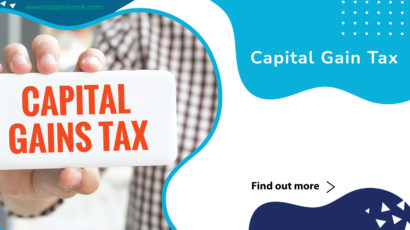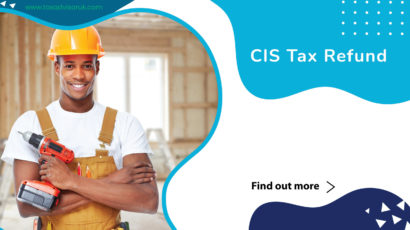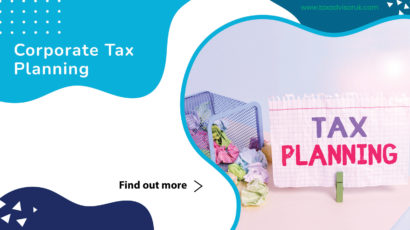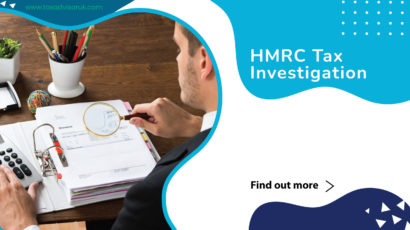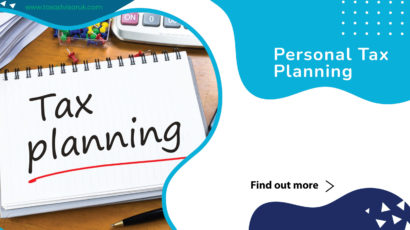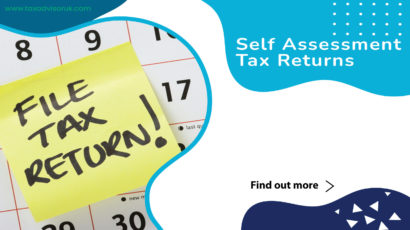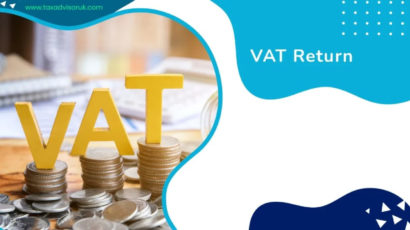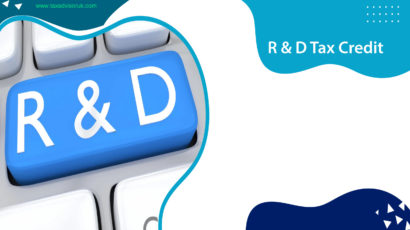As the 2021/22 tax year draws to a close, it’s worth checking to see if you’ve done everything you can to make your tax affairs as effective as possible.
To assist you, we’ve included some of the most important topics that individual taxpayers, business owners, and their families should be aware of.:-
- Income tax
- Maximise your personal allowance
- Pension contributions
- Charitable donations
- Transferring assets to spouse or civil partner
- Make use of an Individual Savings Accounts (ISAs)
- Business taxes
Income tax
Most taxpayers will receive a personal allowance of £12,570 for the tax year ending April 5, 2022. This allowance is deducted from your earnings, and the remaining non-savings earnings are taxed at the following rates in England, Wales, and Northern Ireland:
| Band | Taxable income | Tax rate |
| Basic rate | £12,570 to £50,270 | 20% |
| Higher rate | £50,271 to £150,000 | 40% |
| Additional rate | over £150,000 | 45% |
Non-savings income, such as bank interest and dividend income, has different rates and allowances.
It’s a good idea to strive to maximise both your personal allowance and, if possible, your exposure to higher-rate income tax.
Maximise your personal allowance
You’ll notice that if your income surpasses £150,000, you’ll be subject to the 45 percent higher rate of income tax (46 percent in Scotland). If your annual income is between £100,000 and £125,140, you will pay an effective tax rate of roughly 60%. This is due to the fact that if your income surpasses £100,000, your personal allowance is cut by £1 for every £2 you earn above that threshold.
The good news is that using some easy planning tactics, you may still be able to lower your tax liability. Contributions to a personal pension and charity donations might help lower taxable income in some instances. As a result, you may be able to limit your exposure to higher-rate tax while also maximising your allowances.
You may be able to transfer £1,260 of your unused personal allowance to your spouse or civil partner if you are a basic rate taxpayer. Only if neither of you is a higher-rate taxpayer can you accomplish this.
Pension contributions
Tax-wise, putting money into a personal pension can be highly beneficial.
If you are a basic rate taxpayer and wish to put £100 into your personal pension plan, you will only pay £80. Saving £100 might cost you as little as £60 if you’re a higher rate taxpayer. For an extra rate taxpayer, the cost lowers to just £55 per year.
While it has the potential to be incredibly tax effective, there are a number of hazards and tax traps to be aware of before proceeding.
A variety of variables limit the amount that can be put into a personal pension. The annual allowance limit is one of the most essential of these.
The annual allowance is a limit on how much money you may put into your pension each year and still get tax benefits. The maximum will be capped at £40,000 in 2021/22. The yearly allowance is applicable to all of your pension plans and includes employer payments.
The annual allowance is decreased by £1 for every £2 of adjusted income beyond £240,000, however it can never be cut to less than £4,000. Net income plus occupational pension contributions plus employer pension contributions equals adjusted income.
You can currently carry forward unused annual allowances for a maximum of three years. You must have been a member of a UK registered pension system for the prior tax years in order to qualify.
A lifetime allowance limit applies to the retirement money that you can accumulate. For the years 2021/22, the lifetime allowance is £1,073,100.
The pension environment is complex, and there are a number of options for saving for retirement. You should also be aware that there are other factors that can limit the amount you can save, and if you are unsure about the rules, you should seek professional assistance.
A licensed pension adviser may also be required to provide investing advice.
Charitable donations
Cash gifts to registered charities in the UK and several other countries can also be claimed for tax benefits. The relief works in a similar way to making contributions to a personal pension.
If you are a basic rate taxpayer and wish to give £100 to your favourite charity, the cost to you is simply £80. If you’re a higher rate taxpayer, donating £100 to charity might cost you as little as £60. For an additional rate taxpayer, the effective cost lowers to just £55 once more. To avoid an unintended tax bill, make sure you have paid enough tax to the charity to make the gift aid claim.
Transferring assets to spouse or civil partner
To save money on taxes, you can consider gifting some or all of your income-producing assets to your spouse or civil partner. Before making any donation, there are a number of legal and practical considerations to be made. You should also be aware that a number of requirements must be met in order for this to work. In general, your gift must be an unconditional gift to your husband or civil partner from whom you have not split. It’s usually a good idea to get professional guidance so that your specific situation may be assessed.
Make use of an Individual Savings Accounts (ISAs)
An ISA allows you to save tax-free, so if you have any investments, check to see if they may be held in an ISA. The maximum amount you can save in an ISA in the 2021/22 tax year is £20,000. An ISA can hold cash, stocks, bonds, and other permissible investments. ISAs are subject to a number of age and residence requirements, therefore you should consider seeking investing advice from a certified financial adviser.
Business taxes
We help business owners at TaxAdvisor UK, Accountants to ensure that their businesses are tax effective, and we’ve described below some of the important areas that may be relevant to you as the tax year draws to a close.
Capital expenditure
Bringing ahead eligible capital expenditures may be advantageous. Capital expenditures may be eligible for tax relief in the form of capital allowances, which can lower taxable profits. The Annual Investment Allowance, which offers 100 percent tax relief on the first qualified capital expenditure incurred up to a certain amount, can be claimed by a business.
Whether you’re thinking of buying a new car, tools, or anything else, we can help you figure out when the best time is to buy and what tax benefits are available. If your accounting period ends in March, keep in mind that making the purchase before rather than after your year end will expedite your relief.
A new super deduction in respect of certain capital expenditures was announced in the Spring Budget 2021, and it will be effective for businesses beginning April 1, 2021.
Before making a capital expenditure choice, consult with your accountant.
Bad debts
In these uncertain times, it’s more vital than ever to verify your debtors and make sure any bad debts are properly handled so you don’t pay tax on money you won’t get.
Stock
If your company has a lot of inventory, we can assist you figure out if you need to set aside money for any slow-moving or damaged inventory.
Employing family members
It may be suitable for some firms to consider hiring spouses and family members. There are restrictions in place, and wages must be justified and competitive.
Trading structure
If you incorporate a sole trade firm and run it through a limited company, you may be able to save money on taxes. We can examine your trading structure and advise you on the best course of action.
Company remuneration planning
If you do run your business as a limited company, we can assist you figure out the best mix of compensation and dividends to keep your taxes low.
Research and development tax credits
If your company engages in qualified research and development (R&D), you may be eligible for some tax relief from HMRC.
In general, a profitable firm with acceptable R&D investment of £10,000 might save £4,370 in taxes (£10,000 × 230 percent x 19 percent). When a business is losing money, it is also feasible to file for a tax refund.
Please contact us if you have developed new or improved products or methods so that we can determine whether you are eligible to file a claim.
Start to plan ahead
If you’re thinking of selling your firm, we can help you do so in the most tax-efficient way possible, but it’s a good idea to start planning now.
Expenses
Our goal at TaxAdvisor UK Accountants is to guarantee that you receive all of the allowances and reliefs to which you are eligible. Because you will be taxed on your taxable profits, claiming all deductible expenses, many of which will be reflected in your accounting records, is an important part of tax preparation. We can assist you with auditing your records to ensure that all expenses are claimed.
Our tax advice is provided, but financial advice may be required in some cases.
How TaxAdvisor UK can help
At TaxAdvisor UK , our experts will provide you 30 minutes free consultation and help you in managing all your tax and accounting work. Speak to our expert accountants, tax advisor on (0203) 5381276 or fill an online form today. We can have a consultation session over the phone, virtual or face to face meeting and will provide you with a no obligation fixed quote




